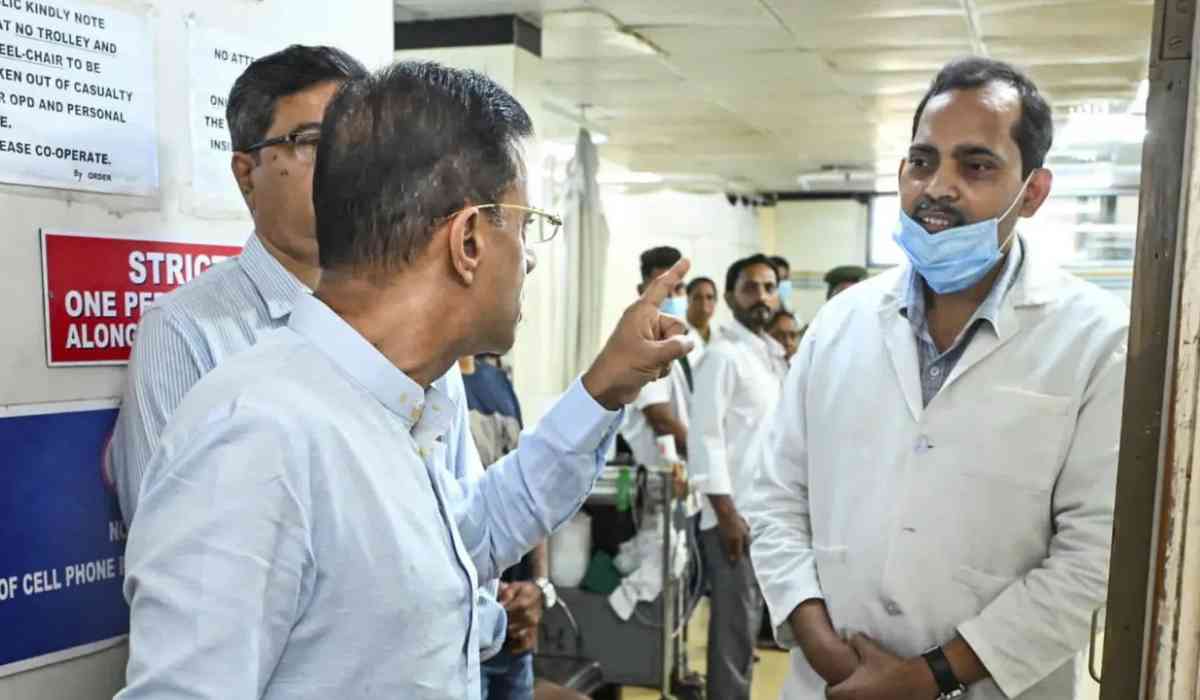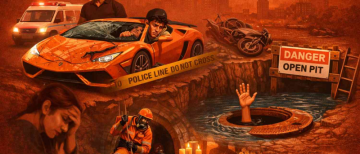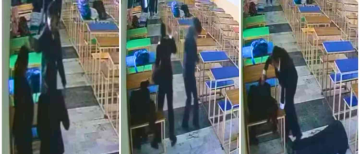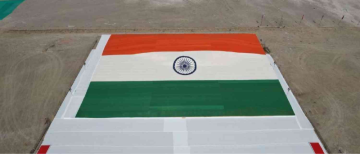In a charged episode that has rocked Goa's healthcare ecosystem, Health Minister Vishwajit Rane’s public confrontation with Dr. Rudresh Kuttikar of the Goa Medical College and Hospital (GMCH) has triggered widespread condemnation, protests, and a looming doctors’ strike. At the heart of the issue lies a volatile mix of patient advocacy, ministerial overreach, and doctors demanding professional respect and procedural justice.
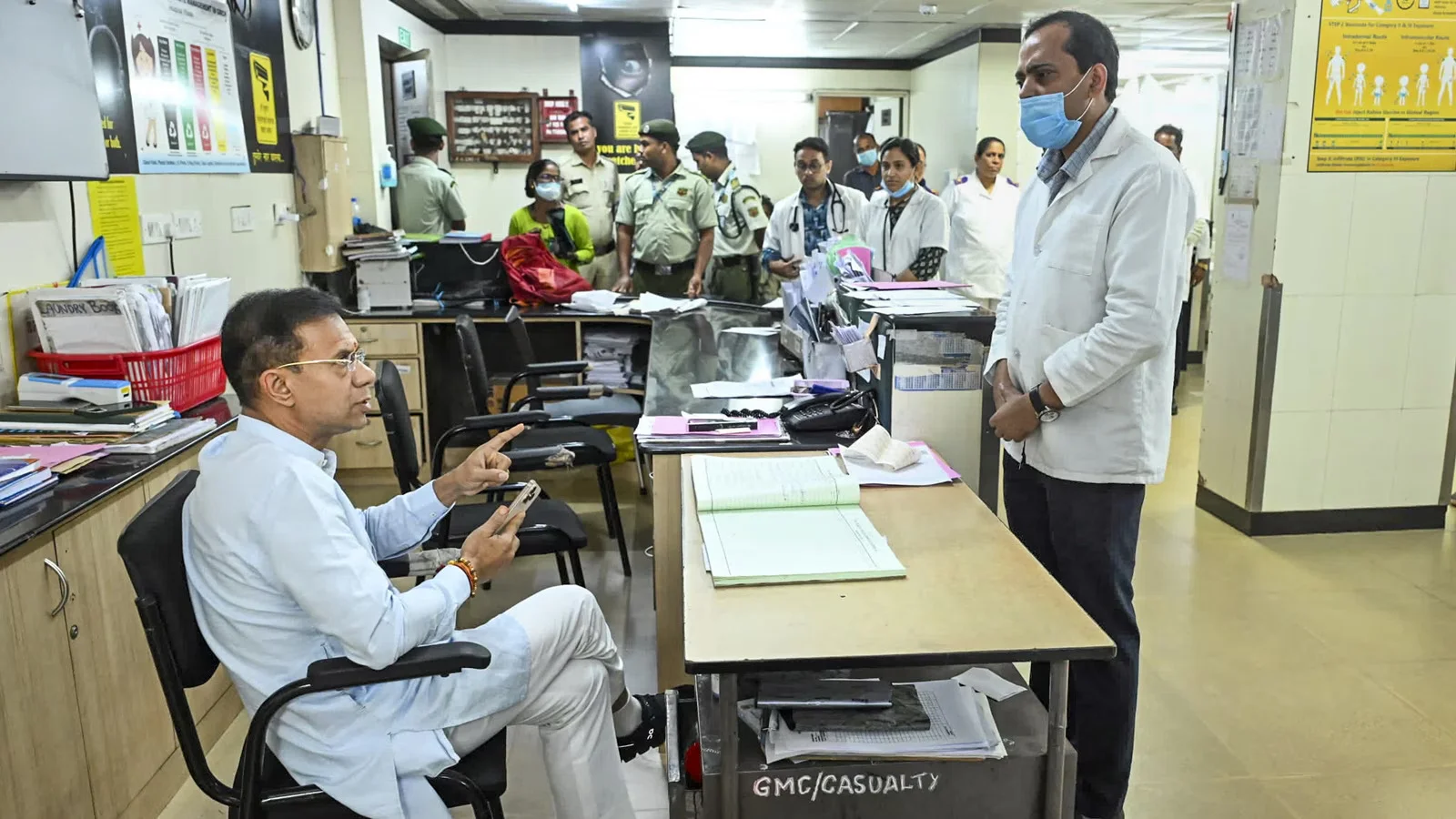
What Exactly Happened?
The incident dates back to June 7, when Health Minister Vishwajit Rane made a surprise inspection of GMCH’s casualty ward—accompanied by a media crew. What was supposed to be a routine check escalated into a public dressing-down of Dr. Rudresh Kuttikar, the hospital’s Chief Medical Officer.
A viral video captured Rane berating the senior doctor in front of patients, staff, and cameras. Enraged over a complaint involving the denial of a Vitamin B12 injection to an elderly patient, Rane is seen furiously shouting, demanding suspension papers for the doctor, and ordering security to escort him out.
“You learn to control your tongue. Don’t force me to act. Put your hands out of your pocket when you are standing in front of me,” Rane snapped during the incident. “Generate his suspension order and kick him out.”
Despite Dr. Kuttikar's attempts to explain that the injection wasn’t an emergency and that the patient was being directed to the OPD as per protocol, Rane cut him off repeatedly.
The video sparked an immediate firestorm on social media, with the medical community rallying around Dr. Kuttikar. It also raised alarms about the normalization of VIP culture and public humiliation within healthcare settings.
Is it the Dictatorship of Goa BJP Govt Health Minister @visrane ?
All because one person from the press complained to him and if it was Normal Person he would not care also.
1. Walking around the hospital like he owns it
2. Recording videos in an area where it's clearly stated… pic.twitter.com/zgdXlCtc9P— Suraj G Naik (@yoursurajnaik) June 7, 2025
Condemnation from Doctors and IMA
The Indian Medical Association’s Goa branch issued a scathing statement, condemning Rane’s “unruly act” and characterizing the episode as an “emotional assault” on a duty doctor. The IMA strongly criticized the bypassing of due process and the use of media for personal vendettas.
“This is an arbitrary and high-handed behavior that has humiliated and victimised a dedicated medical professional in full view of the public and media,” read the IMA’s statement.
The IMA called for:
-
Immediate rescindment of the suspension (which the Chief Minister later fulfilled)
-
Public apology to the doctor and medical community
-
Assurance that such actions would not be repeated
-
End to VIP culture in clinical settings
The Goa Association of Resident Doctors (GARD) echoed the sentiment, stating that reprimanding a doctor without an impartial inquiry undermines the dignity of the medical profession.
#WATCH | Bambolim, Goa: Rudresh Kuttikar, CMO of Goa Medical College and Hospital, who was reprimanded by state health minister Vishwajit Rane, says, "We demand that he (Rane) should apologise publicly, the minister should come to the casualty (department) and apologise. If our… pic.twitter.com/VyCP8v1cOf— ANI (@ANI) June 9, 2025
Health Minister Issues Apology—With Caveats
Facing intense backlash, Minister Rane issued an apology—first during a televised broadcast and then on social media.
“During the broadcast with Prudent Media last night, I openly extended my heartfelt apology to Dr. Rudresh Kuttikar... In the heat of the moment, my emotions overtook my expression, and I deeply regret the manner in which I addressed the situation,” Rane said.
However, he stopped short of retracting his actions in totality. Defending his intent, Rane argued that his intervention was motivated by compassion for a suffering elderly woman who was allegedly denied care.
“What I will not apologise for is standing up for a patient who was denied care. If we let such behaviour pass unaddressed, we send a message that it is acceptable to deny a senior citizen or any other person medical help.”
He added that while the tone and delivery were inappropriate, the intent was to uphold the rights of patients.
Over the last few hours, a lot has been said and written about an incident at Goa Medical College today involving and suspending a doctor on duty. I feel it is important to address this directly, not just as your Health Minister, but as someone deeply committed to ensuring that… pic.twitter.com/hzAQwvkczd— Vishwajit Rane (@visrane) June 7, 2025
Doctors' Protest and Ultimatum
Unimpressed by what they called a “studio apology,” doctors at GMCH launched a massive protest. The entire hospital ecosystem—senior consultants, department heads, interns, and GARD members—stood in solidarity.
Their core demands included:
-
A formal public apology issued at the same casualty department where the incident occurred
I have reviewed the issue at Goa Medical College and held discussions with the Health Minister. I want to assure the people of Goa that Dr. Rudresh Kuttikar will not be suspended.
The State Government and our dedicated medical team remain fully committed to ensuring the highest…— Dr. Pramod Sawant (@DrPramodPSawant) June 8, 2025 -
A commitment to non-repetition
-
Ban on videography in clinical areas
-
Legal action against the individual who filmed the altercation
-
A cultural reset against VIP entitlement in healthcare
“I have seen the video of the minister apologising, but it is a studio apology. The apology should happen where the humiliation happened,” said Dr. Kuttikar.
GARD issued a 48-hour ultimatum, threatening to go on strike if the apology was not made publicly in the same space where the incident occurred.
Politicisation and Public Fallout
As tensions mounted, Goa Chief Minister Pramod Sawant stepped in to defuse the crisis. He assured the public that Dr. Kuttikar would not be suspended and lauded doctors for their continued service.
“The State Government and our dedicated medical team remain fully committed to ensuring the highest standards of healthcare for every citizen,” Sawant posted on X (formerly Twitter).
Meanwhile, Rane expressed dismay that the issue was being politicised, warning that turning a professional matter into a political warzone could erode public trust in the healthcare system.
“The public is bearing the brunt of this situation, and I urge all our doctors to reflect on the larger responsibility we share—the welfare of our people.”
During the broadcast with Prudent Media last night, I openly extended my heartfelt apology to Dr. Rudresh Kuttikar for the harsh words spoken by me during my visit to GMC. In the heat of the moment, my emotions overtook my expression, and I deeply regret the manner in which I…— Vishwajit Rane (@visrane) June 9, 2025
A More Nuanced Take: Both Sides Hold Some Truth
The incident has been framed as a binary between a power-tripping politician and a victimized doctor. But the truth is more complex.
Health Minister Rane, though wrong in humiliating a senior doctor on camera, wasn’t entirely out of line in advocating for a patient. Patient care is paramount, and if Rane’s concerns were valid, they warranted attention. However, the manner of his outburst—public, aggressive, and filmed—undermined the very professionalism he claimed to uphold.
Dr. Kuttikar, on the other hand, is well within his rights to demand an apology for the public humiliation. Yet his insistence on the apology being in the format of the incident, even after multiple statements and a revocation of suspension, risks dragging the issue into political territory rather than professional resolution.
Ultimately, doctors must remember their first responsibility: patients come first. While professional dignity is non-negotiable, continuing to protest after an apology, albeit not to one’s full satisfaction, risks hurting the very people they swore to serve.
Is @visrane truly fit to serve as Goa’s Health Minister? His increasingly erratic and unstable behaviour raises serious concerns about his ability to responsibly oversee the state’s health system.
The shocking incident at Goa Medical College (GMC) where Vishwajit Rane chose to… pic.twitter.com/3qLrgJiCV8— Goa Congress (@INCGoa) June 7, 2025
Final Thoughts: Time to De-escalate and Reflect
The incident has become a mirror reflecting deeper issues in India’s healthcare system—VIP culture, bureaucratic overreach, and the delicate balance between compassion and protocol.
The outrage from the medical fraternity is justified. But it is equally important for both sides to de-escalate. The minister must learn that accountability doesn’t come with cameras. Doctors, too, must accept apologies in good faith, especially when patient care hangs in the balance.
The longer this stalemate continues, the greater the risk to public health and institutional trust. It’s time both sides stop posturing and start prioritising what matters most—the patients.
Views expressed in the above piece are personal and solely those of the author. They do not necessarily reflect Vygr’s views.
With inputs from agencies
Image Source: Multiple agencies
© Copyright 2025. All Rights Reserved Powered by Vygr Media.

